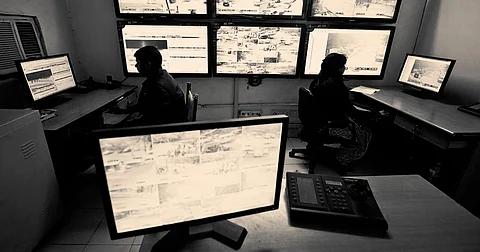

THE BAR ASSOCIATIONS IN DELHI have strongly opposed a notification issued by the Lieutenant Governor of Delhi designating video conferencing rooms in police stations as places for recording evidence.
The notification, issued on August 13, has drawn sharp criticism from the Supreme Court Bar Association (‘SCBA’), the Delhi High Court Bar Association (‘DHCBA’), and the Coordination Committee of All District Court Bar Associations, who have called it a compromise of the judicial process.
The SCBA, in its statement, has termed the notification arbitrary, unlawful, and contrary to natural justice.
“The measure not only undermines the sanctity of the judicial process but also compromises it,” it stated.
It further added: “Such a notification gravely affects the independence of the judiciary and the fair administration of justice, besides being against the larger public interest.”
The DHCBA, in its resolution, has demanded the withdrawal of the notification, arguing that it violates the basic tenets of justice and the principle of a fair trial.
The Coordination Committee of All District Court Bar Associations in Delhi resolved to observe a two-day strike on August 22 and 23 to protest the notification.
Section 265 of the Bharatiya Nagarik Suraksha Sanhita (BNSS), 2023, which pertains to evidence for the prosecution, among other things, provides that the examination of a witness under this subsection may be conducted through audio-video electronic means at a designated place notified by the State Government.
Section 266 of the BNSS, which pertains to evidence for the defense, similarly provides that the examination of a witness under this subsection may be conducted through audio-video electronic means at a designated place notified by the State Government.
Section 308 of the BNSS stipulates that evidence must be taken in the presence of the accused, which may also include through audio-video electronic means at a designated place notified by the State Government.
It is this power that the Lieutenant Governor of Delhi stated to have exercised to designate police stations as venues for recording evidence by police officials.
Until the enactment of the BNSS and Bharatiya Sakshya Adhiniyam (BSA), 2023, there was no legal provision for recording evidence through audio-video electronic means.
However, in 2003, the Supreme Court, in State of Maharashtra v. Dr. Praful B. Desai, held that evidence, even in criminal matters, can be recorded by way of electronic records, including video conferencing.
Speaking to The Leaflet, senior advocate Rebecca M. John emphasised that cross-examination is an important right granted to an accused to challenge the state’s narrative in a case.
“Cross-examination is a physical, not a virtual, exercise where courts observe the demeanor of a witness, check if they are being prompted, or refer to any material before answering,” John highlighted.
She further noted that, in the past, courts have permitted cross-examination of witnesses through virtual means only in exceptional circumstances, such as when witnesses reside abroad and cannot travel to India, or when they are in India but unable to travel due to ill health or other compelling reasons.
Even in such cases, John said, strict measures are in place to ensure the integrity of the process is not compromised.
Expressing her disapproval of designating police stations as venues for recording the evidence of police officers, John stated that establishing video conferencing rooms in police stations to record the testimony of police officers, whose testimonies the accused is contesting, is a travesty of justice and must not be allowed.
“In any event, from where does the Lieutenant Governor derive the power to interfere in a judicial process?” she questioned.
John also pointed out that the notification contravenes the Delhi High Court’s Video Conferencing Rules, which permit the recording of evidence through audio-visual means only after obtaining the consent of the accused.